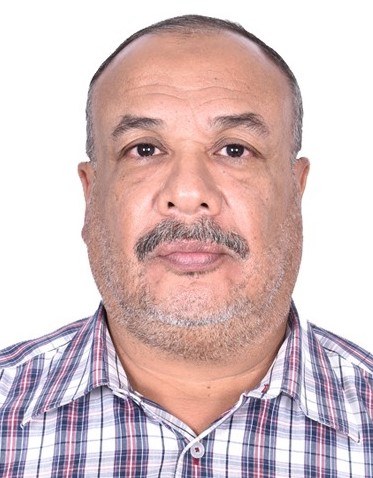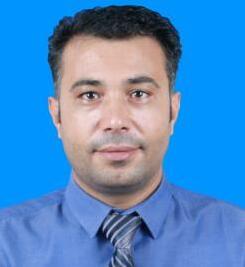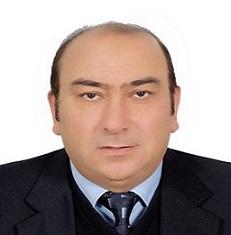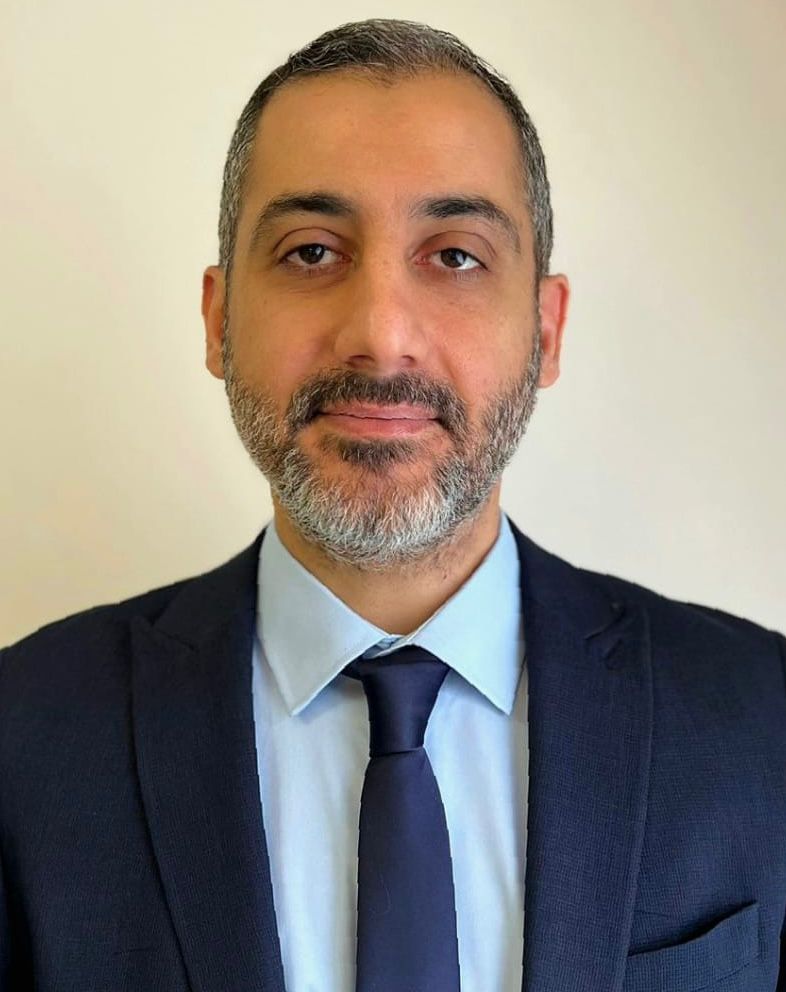
Welcome to the Electrical Engineering Department!
Welcome to the Department of Electrical Engineering at the College of Engineering of Fahad Bin Sultan University. The Department offers quality-education Electrical Engineering programs, whose learning outcomes are aligned with their corresponding NQF levels in terms of knowledge and understanding, skills, and values. The Department is also active in terms of community service and partnership, where extracurricular and professional and ethical development activities are regularly handled.
The Department’s academic and research tracks are mainly focused on energy and power systems, instrumentation and control systems, wireless communication and signal processing, and applied electromagnetics.
The Department offers a
1) Bachelor of Electrical Engineering Degree (ELEE BE Program), whose study plan is blueprinted to strengthen the students’ expertise in various Electrical Engineering disciplines such as energy and power, control, and communication systems.
2) Master of Electrical Engineering Degree (ELEE ME Program) with the following specialization areas:
a) Renewable Energy Systems (RES)
b) Energy and Power Systems (EPS)
c) Communication and Network Systems (CNS)
Please enjoy surfing the Department’s webpage and explore its program’s mission and goals, learning outcomes, degree requirements and study plan, practical training and final year project details, and educational and research laboratories. If you have any questions or inquiries, please do not hesitate to contact the Department at ee@fbsu.edu.sa.
Ali Ramadan, Ph. D.
Assistant Professor, Chairman of the Electrical Engineering Department
Mission
The Electrical Engineering program is committed to delivering high-quality education that develops competent, innovative, ethical engineers grounded in strong foundations of mathematics, science, and engineering principles. The program fosters research and innovation, promotes the design of sustainable, safe, and ethically responsible solutions with integrity, encourages effective communication, leadership, teamwork, and community engagement, and prepares graduates for lifelong learning and adaptation to emerging technologies to address global challenges.
ELEE BE Program Educational Objectives (PEOs or POs) :
PO1. Apply Engineering Fundamentals: Equip students to solve electrical engineering problems using principles of mathematics, basic sciences, and engineering analysis, aligned with industry and societal needs.
PO2. Design Sustainable Solutions: Develop skills to design systems and processes that prioritize safety, sustainability, and ethical considerations in diverse socio-economic and environmental contexts.
PO3. Promote Professional Competence: Cultivate effective communication, teamwork, leadership, and ethical judgment to address global challenges and uphold professional responsibilities in engineering practice.
PO4. Advance Lifelong Learning: Prepare graduates to adapt to emerging technologies, conduct experiments, interpret data, and pursue continuous learning for research or professional growth.
ELEE BE Program Learning Outcomes
A. Program Learning Outcomes-POs Mapping
|
ABET SLOs |
PIs |
NCAAA PLOs |
POs |
|
1) an ability to identify, formulate, and solve complex engineering problems by applying principles of engineering, science, and mathematics. |
1a) Demonstrate the ability to identify and understand the principles of engineering, science, and mathematics. |
K1) Gain knowledge of mathematics, science, and engineering. |
PO1 |
|
1b) Formulate complex engineering problems by applying the principles of engineering, science, and mathematics. |
K2) Outline engineering problems solutions based on the principles of physical sciences and mathematics. |
PO1 |
|
|
1c) Apply engineering, science, and mathematics principles to develop solutions for complex engineering problems. |
S1) Solve engineering problems by applying principles of mathematics, science, and engineering. |
PO1 |
|
|
2) an ability to apply engineering design to produce solutions that meet specified needs with consideration of public health, safety, and welfare, as well as global, cultural, social, environmental, and economic factors. |
2a) Produce a clear needs statement for a design project, identify constraints, and establish criteria for acceptable and desirable solutions. |
S3) Apply modern techniques and skills to produce solutions in global, economic, environmental, and societal contexts for engineering practice. |
PO2 |
|
2b) Evaluate and analyze the economic aspects of engineering solutions, and use appropriate techniques to assess and manage risks in product or process design. |
|||
|
3) an ability to communicate effectively with a range of audiences. |
3) Communicate effectively with diverse audiences, tailoring the message to the audience's level of understanding and context. |
S5) Communicate effectively with a range of audiences. |
PO3 |
|
4) an ability to recognize ethical and professional responsibilities in engineering situations and make informed judgments, which must consider the impact of engineering solutions in global, economic, environmental, and societal contexts. |
4a) Recognize and uphold ethical and professional responsibilities in engineering situations. |
V1) Uphold ethical and professional responsibilities. |
PO3 |
|
4b) Identify alternative engineering solutions, considering economic, environmental, and societal impacts, and address design conflicts. |
K3) Describe and categorize engineering related contemporary issues. |
PO2 |
|
|
5) an ability to function effectively on a team whose members together provide leadership, create a collaborative and inclusive environment, establish goals, plan tasks, and meet objectives. |
5a) Identify and fulfill roles within a team to ensure success, integrate inputs from all team members, and make decisions based on objective criteria. |
V2) Function and contribute effectively in a team. |
PO3 |
|
5b) Monitor team progress and provide constructive feedback to enhance team performance. |
|||
|
6) an ability to develop and conduct appropriate experimentation, analyze and interpret data, and use engineering judgment to draw conclusions. |
6a) Demonstrate good laboratory practices and instrumentation skills to measure specific quantities and collect required data. |
S2) Develop and conduct appropriate experimentation, analyze and interpret data, and use engineering judgement to draw conclusions. |
PO4 |
|
6b) Use appropriate tools to analyze data, verify and validate experimental results, and account for experimental errors. |
|||
|
7) an ability to acquire and apply new knowledge as needed, using appropriate learning strategies. |
7) Show awareness of the importance of continuous learning and research after graduation, and independently find information relevant to problem-solving. |
S4) Acquire life-long learning skills as needed, using appropriate learning strategies. |
PO4 |
B. POs-PIs-NCAAA PLOs Mapping
|
PO |
PIs |
NCAAA PLOs |
|
PO1 |
1a), 1b), 1c) |
K1), K2), S1) |
|
PO2 |
[2a), 2b)], 4b) |
S3), K3) |
|
PO3 |
3), 4a), [5a), 5b)] |
S5), V1), V2) |
|
PO4 |
[6a), 6b)], 7) |
S2), S4) |
Career Opportunities
Modern electrical engineering is a broad and diverse field that rivals all engineering disciplines in its impact on society. The expanding role of electrical engineering in today’s society reflects the variety and scope of this exciting profession. Local as well as regional career opportunities now available for electrical engineers that span electric power and renewable energy industry; power system planning and protection, electrical power generation, conversion, transmission and distribution; wireless communication and networking industry; wireless cellular technologies, internetworking engineering, antennas for wireless communication, and RF circuits and systems; design and implementation of autonomous systems; signal processing, control, and instrumentation; and consulting companies.
The Department of Electrical Engineering is committed to provide its students with meaningful, up- to-date skills and knowledge that allow them to pursue successful engineering careers and make deep impacts in their workplace. With these objectives in mind, the Electrical Engineering program is designed around fostering contemporary best practices and skills in line with the job opportunities for electrical engineers primarily within Tabuk and the Gulf region.
Consequently, graduates of the Department of Electrical Engineering are poised to take advantage of numerous job opportunities within the Tabuk province, and in the growing Saudi and Gulf markets.
Electrical Engineering Laboratory
Electrical Engineering LABs Policy and Safety Guidelines
The ELEE Program is supported by state-of-the-art laboratories located on the first and second floors of the main building. Students enrolled in ELEE laboratory courses must adhere to the policy and safety guidelines posted herein. All ELEE laboratories offer hands-on experience across various disciplines in Electrical Engineering as follows.
a) Computer-based Laboratories: The majority of ELEE laboratories are designed to facilitate simulation-based analysis and interpretation across various disciplines within Electrical Engineering. Equipped with computing hardware and specialized software tools, such as MATLAB/Simulink and LabVIEW, they enable students to model and simulate systems related to control, power, and others. This helps students better to examine theoretical concepts, perform design validation, and analyze system performance. Such computer-based feature plays a crucial role in enhancing students’ understanding of abstract concepts and preparing them for real-world engineering challenges.
b) Circuits and Electronics Laboratory (see Fig. 1.1): This laboratory provides hands-on experience in the design, analysis, construction, and testing of electric and electronic circuits. It aims to expose students to a wide range of practical techniques, including circuit assembly, performing real-time measurements, and troubleshooting. Students explore the characteristics and behavior of various components as well as various circuit configurations. The Circuits and Electronics Laboratory also emphasizes safety procedures, accuracy in data collection, and the interpretation of experimental results.
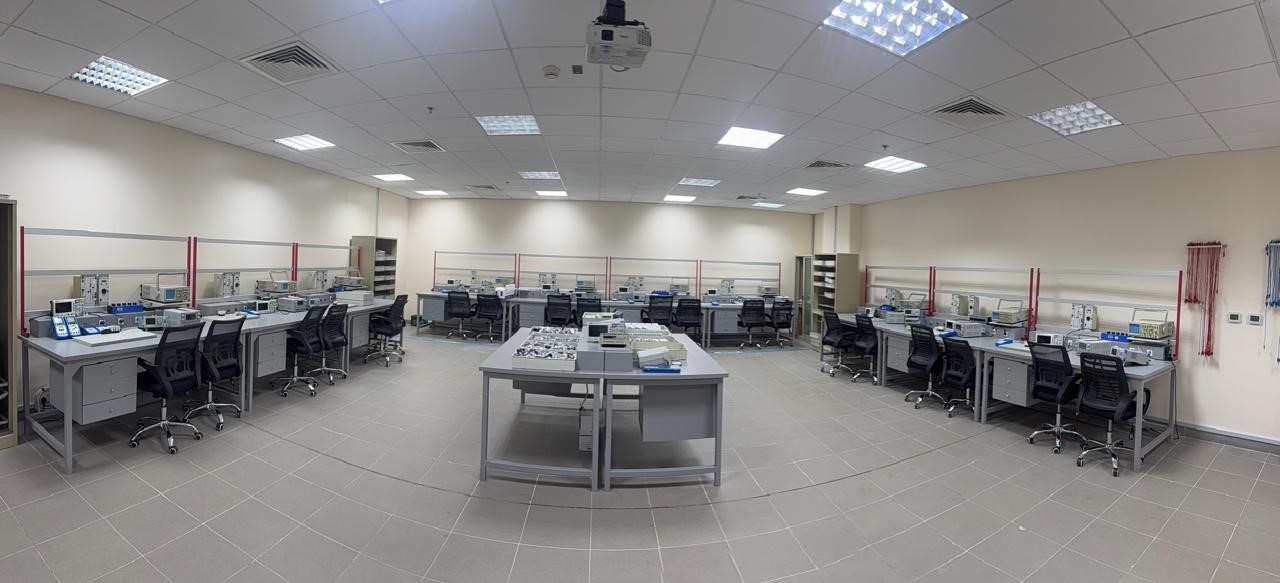
Fig. 1.1. ELEE Circuits and Electronics Laboratory (S-1051).
c) Digital Systems Laboratory (see Fig. 1.2): This laboratory is dedicated to providing students with practical experience in the design, implementation, and testing of digital logic systems. It also introduces students to low-level programming, particularly in assembly language, and provides opportunities to practice programming techniques for microprocessors and microcontrollers. Emphasis is placed on code debugging and hardware-software integration. Additionally, students can practice how to interface peripherals such as sensors, displays, and keypads with microcontrollers.
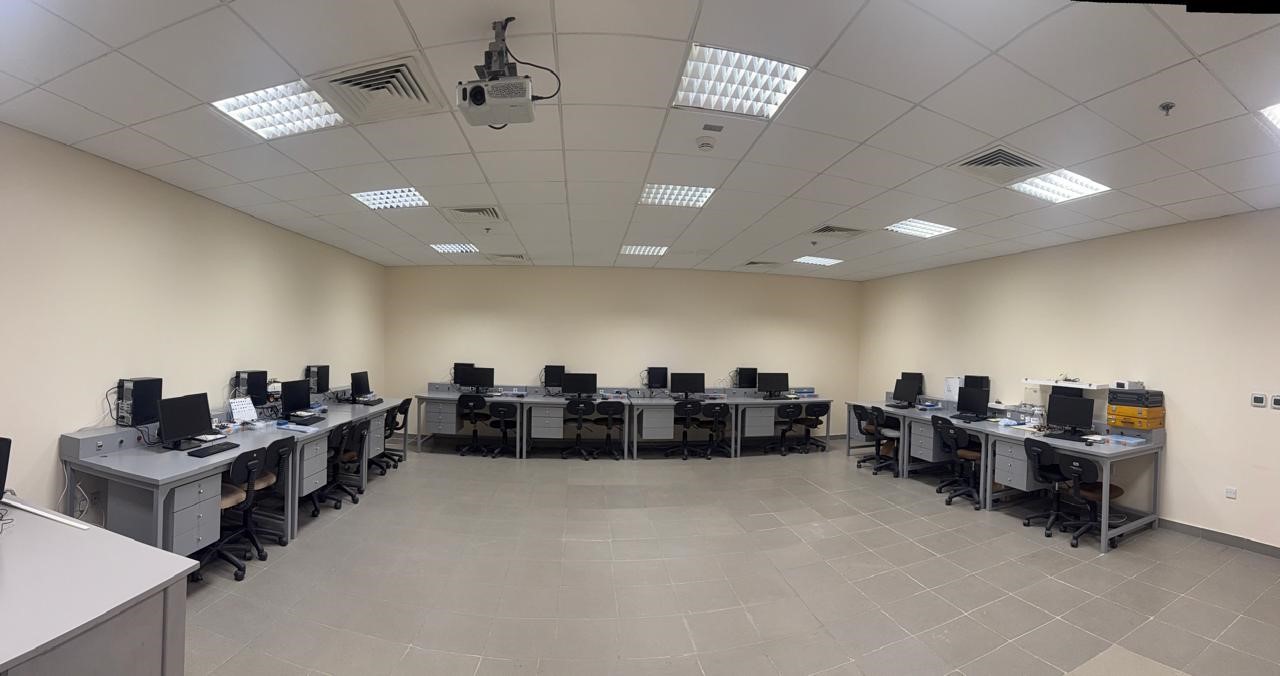
Fig. 1.2. ELEE Digital Systems Laboratory (S-2057).
d) Electric Machines Laboratory (see Fig. 1.3): This laboratory provides hands-on experience in testing, analyzing, and understanding the performance characteristics of both direct current (DC) and alternating current (AC) electric machines. Students engage in experiments involving various types of machines such as DC motors and generators, synchronous machines, and induction motors. Besides emphasizing safety procedures and practices, the laboratory focuses on key parameters including torque, speed, efficiency, power factor, losses, and thermal behavior under different load and operating conditions. Students learn to perform tests like the no-load test, load test, locked rotor test, and insulation resistance measurement, gaining insight into machine performance, operational limits, and fault diagnosis. The laboratory also covers concepts related to machine starting methods, speed control techniques, and energy conversion principles.
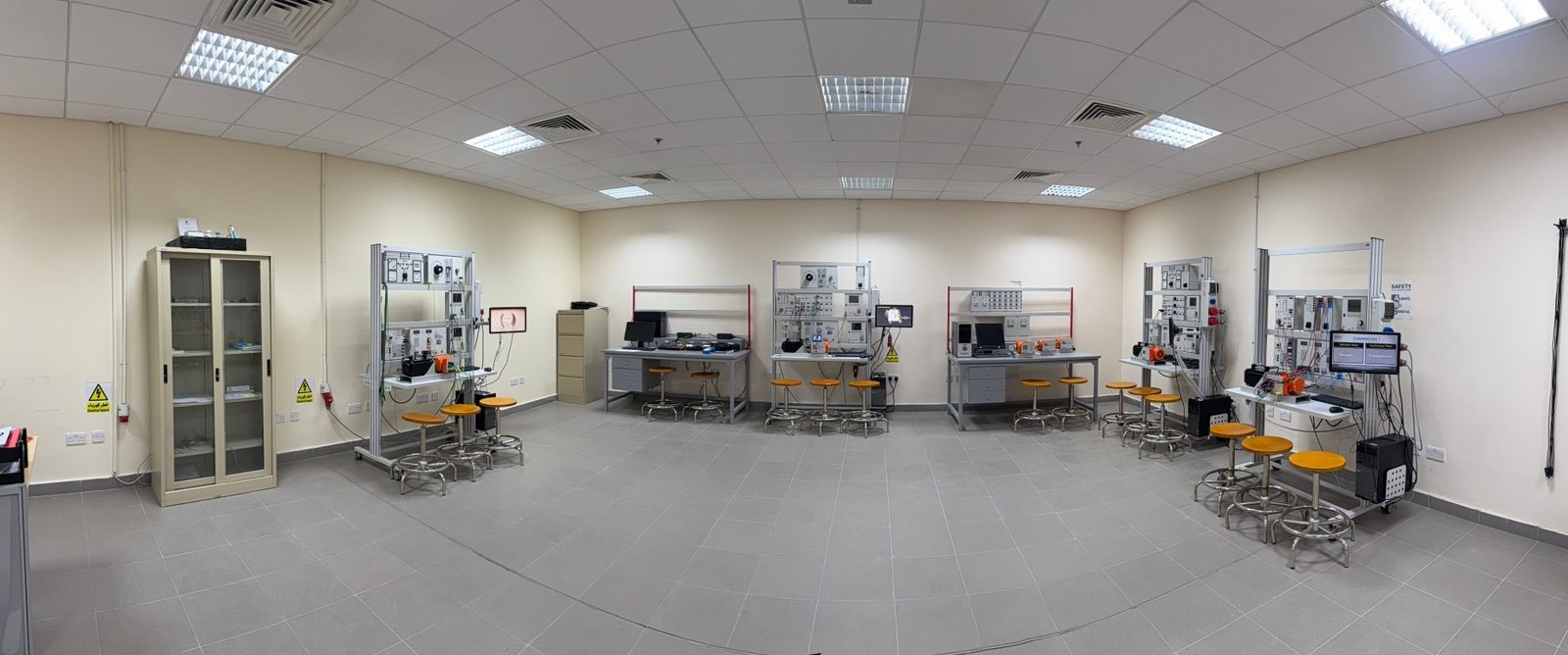
Fig. 1.3. ELEE Electric Machines Laboratory (S-2050).
e) Control Systems Laboratory (see Fig. 1.4): This laboratory is dedicated to providing students with practical experience in designing, implementing, and evaluating control systems using computer-aided tools and real-time experiments. The laboratory features state-of-the-art hardware and software from Quanser, a leading provider of advanced control system educational platforms. It also emphasizes the application of classical control techniques, including PID controllers, as well as modern control methods like state-space representation and digital control. Students use MATLAB/Simulink alongside physical apparatus to model, simulate, and validate control system designs.
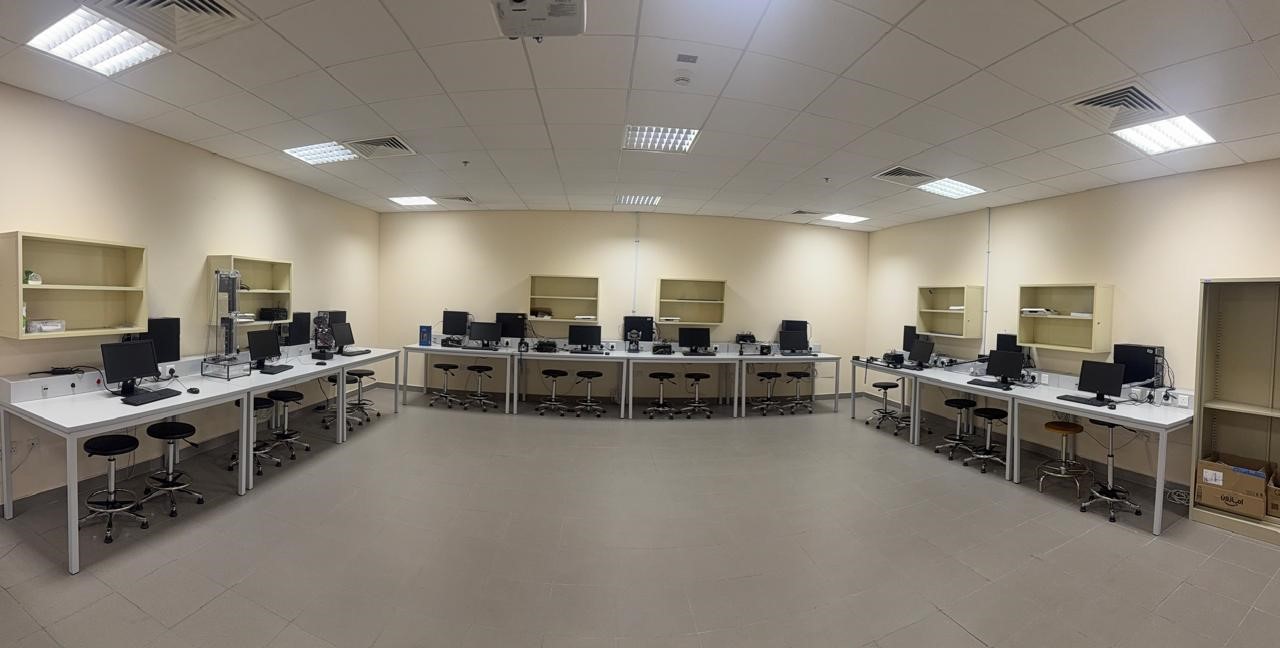
Fig. 1.4. ELEE Control Systems Laboratory (S-2048).
f) Communication Systems Laboratory (see Fig. 1.6): This laboratory is designed to provide students with practical experience in analyzing, designing, and evaluating both analog and digital communication systems. Students gain hands-on exposure to the fundamental components of communication systems, including transmitters, receivers, modulators, demodulators, encoders, and decoders. The laboratory also covers a wide range of communication techniques such as amplitude modulation (AM), frequency modulation (FM), phase modulation (PM), pulse code modulation (PCM), and various digital modulation schemes like ASK, FSK, and PSK. Students perform experiments to assess system performance metrics including signal-to-noise ratio (SNR), bit error rate (BER), bandwidth efficiency, and distortion.
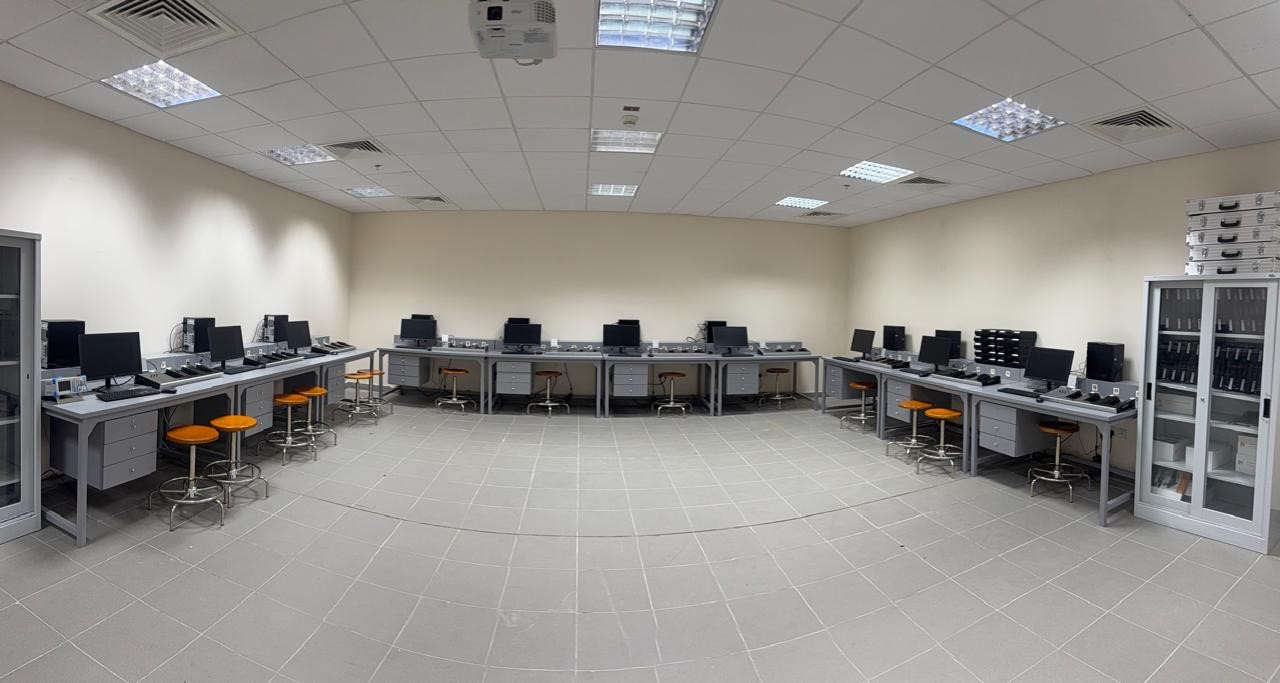
Fig. 1.6. ELEE Communication Systems Laboratory (S-2048).
g) Power Systems Laboratory (see Fig. 1.7): This cutting-edge laboratory offers comprehensive educational and research facilities covering the entire spectrum of electric power systems and renewable energy technologies. It is designed to provide students and researchers with hands-on experience in analyzing, modeling, and testing power generation, transmission, and distribution. It also includes advanced equipment and simulation tools to study power system components such as transformers, circuit breakers, relays, protective devices, and switchgear. Students explore topics like load flow analysis, fault analysis, power quality, stability studies, and grid integration of renewable energy sources including solar, wind, and energy storage systems.
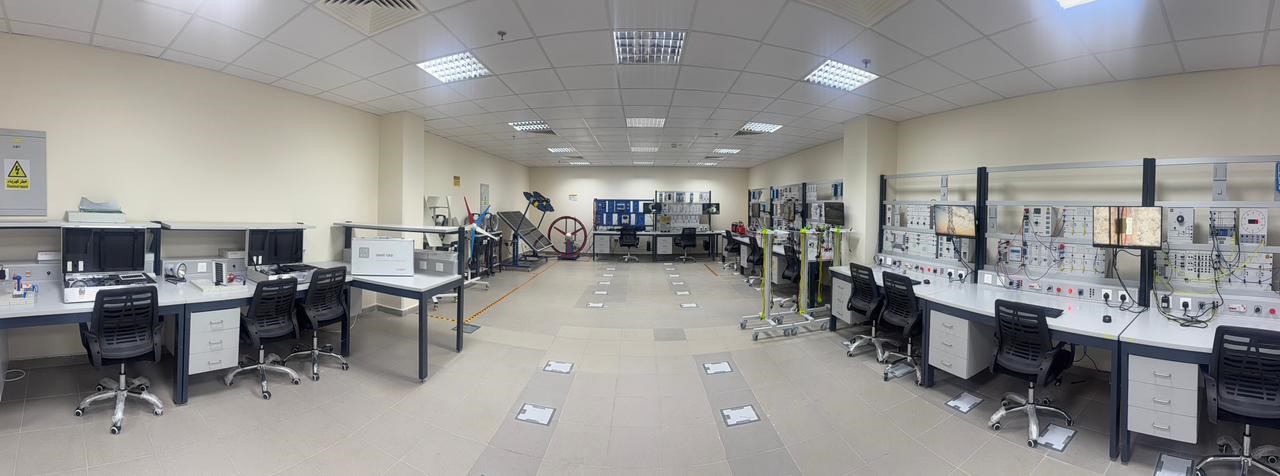
Fig. 1.7. ELEE Power Systems Laboratory (S-2007/8).
ELEE BE Curriculum and Program Structure
The curriculum of the Electrical Engineering undergraduate program is designed in conformance with the plan approved by the MOE. It also complies with the requirements of NCAAA and ABET accreditation bodies. It includes courses in basic sciences and mathematics, engineering sciences, engineering design, communications skills, and humanities and social sciences. In addition, Lab hands-on experience with emphasis on design is an important element that is integrated throughout the curriculum. To graduate with a Bachelor degree of Electrical Engineering, students must satisfactorily complete all graduation requirements as outlined in each of the below categories, including the 4 credit-hour Final Year Project and 1 credit-hour Summer Internship components with a cumulative GPA not less than 2.0.
2020 ELEE BE Study Plan: A total of 134 credit hours as follows.
a) 32* credit hours of mathematics and basic sciences,
b) 73 credit hours of engineering sciences and engineering design,
c) 15 credit hours of social sciences and humanities,
d) 12 credit hours of English language and technical writing skills,
e) 1 credit hour of engineering ethics, and
f) 1 credit hour of practical training
2020 ELEE BE Study Plan Courses Classification Matrix
|
Type of Requirement |
Math & Basic Sciences |
Engineering |
Other |
Total CH (%) |
|
University Requirements |
6 |
|
24 |
30 (22.4) |
|
College Requirements |
26 |
8 |
3 |
37 (27.6) |
|
Specialization Requirements |
|
58 |
|
58 (43.2) |
|
Specialization Electives |
|
9 |
|
9 (6.8) |
|
Total CH (%) |
32*(23.88) |
75 (55.97) |
27 (20.15) |
134 (100) |
*Math and Basic Sciences, which include foundational Math courses, account for more than 32 CH.
2023 ELEE BE Study Plan: A total of 159 credit hours as follows.
a) 35 credit hours of mathematics and basic sciences,
b) 92 credit hours of engineering sciences and engineering design,
c) 15 credit hours of social sciences and humanities,
d) 15 credit hours of English language and technical writing skills,
e) 1 credit hour of engineering ethics, and
f) 1 credit hour of practical training
ELEE BE Study Plan Courses Classification Matrix
|
Type of Requirement |
Math & Basic Sciences |
Engineering |
Other |
Total CH (%) |
|
University Requirements |
6 |
|
31 |
37 (23.3) |
|
College Requirements |
29 |
11 |
|
40 (25.1) |
|
Specialization Requirements |
|
73 |
|
73 (45.9) |
|
Specialization Electives |
|
9 |
|
9 (5.7) |
|
Total CH (%) |
35 (22) |
93 (58.5) |
31 (19.5) |
159 (100) |
2020 ELEE BE Study Plan 2023 ELEE BE Study Plan
2020 ELEE BE Study Plan Flow Chart 2023 ELEE BE Study Plan Flow Chart
Final Year Project (FYP)
FYPs, at the Electrical Engineering Department, are intended to provide students with practical experience in a wide range of Electrical Engineering applications including energy and power systems, instrumentation and control systems, wireless communication and signal processing, and applied electromagnetics. Students are expected to work in groups and learn how to initiate a project in an engineering discipline by completing the following main tasks: define a problem, state its objectives, complete a literature survey, set specifications, and design and implement the proposed project idea.
Objectives:
a) Apply multidisciplinary knowledge and skills approaches to tackle Electrical Engineering problems.
b) Enhance problem-solving, design implementation, and prototyping skills.
c) Consider real-life constraints and critically evaluate alternatives before selecting a final solution.
d) Enhance written and oral communication skills.
e) Effectively foster ethical and teamwork values.
FYP I Report Template FYP I PPT Template
FYP II Report Template FYP II PPT Template
Practical training
Practical training contributes to developing the practical experience of the Electrical Engineering program graduates, where all Electrical Engineering students are required to fulfill a 1-credit hour internship period of 8 to 12 weeks. Practical training is open for students with senior standing (i.e. completed around 80% of the total credit requirement) to gain practical training experience during the summer prior to graduation, or during a graduation semester, with either a company or an academic institution.
By the end of practical training, students should be able to:
a) Identify the organizational structure, units, quality system, and ethical responsibilities of a professional work environment.
b)Formulate an objective statement that reflects the outcomes of his/her internship.
c) Report technical details.
ELEE 400 Report Template
AA-108-F7 Training Evaluation Report – English
The below flowchart details the process, with all interrelated entities being included, that an Electrical Engineering student should handle to complete his/her internship requirements.
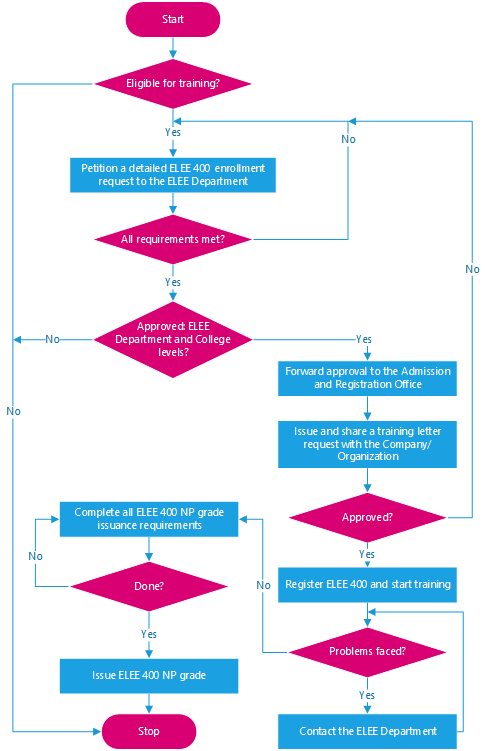
Degree Requirements
Starting in 2023, to graduate with a BE degree in Electrical Engineering, students must satisfactorily complete 159 credit hours as categorized below.
1. University Requirements (37 credit hours)
A total of 37 credit hours of general educational requirements:
a- 6 credit hours of Arabic language: ARAB 101 and ARAB 201
b- 15 credit hours of English communication skills: ENGL 100, ENGL 101, ENGL 102, ENGL 203, and ENGL 206
c- 7 credit hours of physical and health education and social and cultural studies: PHE 101, SOCS 101, and a free elective
d- 3 credit hours of information technology: IT 100
e- 6 credit hours of mathematics: MATH 100 and STAT 100
2. College Requirements (40 credit hours)
Electrical Engineering students are required to complete a total of 40 credit hours as college requirements as follows:
a- 11 credit hours of sciences: PHYS 101, PHYS 102, PHYS 103L, CHEM 101, and CHEM 101L
b- 18 credit hours of mathematics and statistics: MATH 101, MATH 102, MATH 201, MATH 202, MATH 215, and STAT 230
c- 6 credit hours of computing basics and programming for engineers: CSC 101 and ELEE 230
d- 1 credit hour of engineering drawing: CIVE 205
e- 3 credit hours of engineering economy: COEN 300
f- 1 credit hour of engineering ethics: COEN 401
3. Program Requirements (82 credit hours)
Electrical Engineering students must complete 82 credit hours as program requirements as follows:
a. 73 credit hours of core courses: ELEE 210, ELEE 220, ELEE 240, ELEE 250, ELEE 250L, ELEE 290, ELEE 290L, ELEE 340, ELEE 340L, ELEE 350, ELEE 360, ELEE 371, ELEE 380, ELEE 390, ELEE 399L, ELEE 400, ELEE 440L, ELEE 451, ELEE 460L, ELEE 461, ELEE 462, ELEE 469, ELEE 470, ELEE 470L, ELEE 476, ELEE 480L, ELEE 485, ELEE 490, ELEE 498, ELEE 499, and MECH 225
b. 9 credit hours of elective courses: ELEE 403, ELEE 422, ELEE 423, ELEE 431, ELEE 442, ELEE 443, ELEE 463, ELEE 465, ELEE 468, ELEE 471, ELEE 474, and ELEE 491
ELEE BE Study Plan versus 2023 ELEE BE Study Plan
|
Type of Requirement |
2020 ELEE BE Study Plan |
2023 ELEE BE Study Plan |
|
University Requirements |
A total of 30 credit hours, which include: ARAB 101, ARAB 201, CSC 101, ENGL 101, ENGL 102, ENGL 203, SOCS 101, SOCS 202, MATH 101, and one free elective of (FREN 101, PHED 101, SOCS 201, ASTR 150, CHEM 150). |
A total of 37 credit hours, which include: ARAB 101, ARAB 201, ENGL 100, ENGL 101, ENGL 102, ENGL 203, ENGL 206, IT 100, MATH 100, PHE 101, SOCS 101, STAT 100, and one free elective of (FREN 101, PHED 101, SOCS 201, ASTR 150, CHEM 150). |
|
College Requirements |
A total of 37 credit hours, which include: PHYS 101, PHYS 102, PHYS 103L, CHEM 101, CHEM 101L, MATH 102, MATH 201, MATH 202, MATH 215, STAT 230, ELEE 230, ENGL 206, CIVE 205, COEN 300, and COEN 401. |
A total of 40 credit hours, which include: PHYS 101, PHYS 102, PHYS 103L, CHEM 101, CHEM 101L, MATH 101, MATH 102, MATH 201, MATH 202, MATH 215, STAT 230, CSC 101, ELEE 230, CIVE 205, COEN 300, and COEN 401. |
|
Specialization Requirements |
53 credit hours of core Electrical Engineering program courses. These include ELEE 210, ELEE 220, ELEE 240, ELEE 250, ELEE 250L, ELEE 290, ELEE 290L, ELEE 340, ELEE 340L, ELEE 350, ELEE 360, ELEE 371, ELEE 380, ELEE 390, ELEE 399L, ELEE 440L, ELEE 451, ELEE 460L, ELEE 461, ELEE 470, ELEE 470L, and ELEE 480L.
|
68 credit hours of core Electrical Engineering program courses. These include ELEE 210, ELEE 220, ELEE 240, ELEE 250, ELEE 250L, ELEE 290, ELEE 290L, ELEE 340, ELEE 340L, ELEE 350, ELEE 360, ELEE 371, ELEE 380, ELEE 390, ELEE 399L, ELEE 440L, ELEE 451, ELEE 460L, ELEE 461, ELEE 462, ELEE 469, ELEE 470, ELEE 470L, ELEE 480L, ELEE 476, ELEE 485, ELEE 490, and MECH 225. |
|
1 credit hour of ELEE 400 (Summer Internship for Electrical Students) |
1 credit hour of ELEE 400 (Summer Internship for Electrical Students) |
|
|
4 credit hours of ELEE 498 and ELEE 499 (Final Year Project I and II) |
4 credit hours of ELEE 498 and ELEE 499 (Final Year Project I and II) |
|
|
Specialization Electives |
9 credit hours of elective Electrical Engineering program courses. These include ELEE 403, ELEE 422, ELEE 423, ELEE 431, ELEE 442, ELEE 443, ELEE 462, ELEE 463, ELEE 465, ELEE 468, ELEE 469, ELEE 471, ELEE 474, ELEE 476, ELEE 485, ELEE 490, and ELEE 491. |
9 credit hours of elective Electrical Engineering program courses. These include ELEE 403, ELEE 422, ELEE 423, ELEE 431, ELEE 442, ELEE 443, ELEE 463, ELEE 465, ELEE 468, ELEE 471, ELEE 474, and ELEE 491. |
|
Total |
134 CH |
159 CH |
Department Advisory Board
ELEE Advisory Board Members and their Affiliations
|
Title/Name |
Affiliation |
|
Dr. Hani Albalawi |
University of Tabuk |
|
Eng. Meshal Al-Balawi |
Saudi Electricity Company |
|
Eng. Ahmed Alatawi |
Saudi Telecom Company |
|
Eng. Mohammed Al-Thobaiti |
Technical and Vocational Training Corporation |
|
Eng. Mohammed AlGhamdi |
Saudi Central Bank |
Master Degree in Electrical Engineering
Mission
The Master of Electrical Engineering program is committed to providing advanced education that cultivates deep technical expertise, research capability, and professional competence to address complex engineering challenges. It fosters lifelong learning, ethical responsibility, and interdisciplinary collaboration, enabling graduates to develop innovative and sustainable solutions that serve global, economic, environmental, and societal needs.
ELEE ME Program Educational Objectives (PEOs or POs) :
PO1. Equip graduates with advanced electrical engineering knowledge and skills to address complex challenges, fostering lifelong learning to adapt to emerging technologies and societal needs.
PO2. Develop graduates' ability to conduct independent research, analyze and interpret data, and synthesize valid conclusions.
PO3. Promote graduates to apply engineering principles and modern tools to design sustainable solutions that consider global, economic, environmental, and societal contexts.
PO4. Foster graduates' ability to communicate effectively, lead multidisciplinary teams, and uphold ethical and professional responsibilities in diverse engineering environments.
ELEE ME Program Learning Outcomes
A. Program Learning Outcomes-POs Mapping
|
ABET SLOs |
NCAAA PLOs |
POs |
|
|
1) an ability to identify, formulate, and solve complex engineering problems by applying principles of engineering, science, and mathematics. |
S1) Apply engineering principles, scientific knowledge, and mathematical techniques to confront intricate engineering problems. |
PO1
|
|
|
2) an ability to apply engineering design to produce solutions that meet specified needs with consideration of public health, safety, and welfare, as well as global, cultural, social, environmental, and economic factors. |
S2) Apply modern techniques and skills to produce solutions in global, economic, environmental, and societal contexts for engineering practice. |
PO3 |
|
|
3) an ability to communicate effectively with a range of audiences. |
S4) Communicate effectively with a range of audiences. |
PO4 |
|
|
4) an ability to recognize ethical and professional responsibilities in engineering situations and make informed judgments, which must consider the impact of engineering solutions in global, economic, environmental, and societal contexts. |
V2) Uphold ethical and professional responsibilities. |
PO4
|
|
|
5) an ability to function effectively on a team whose members together provide leadership, create a collaborative and inclusive environment, establish goals, plan tasks, and meet objectives. |
V1) Function effectively in a team. |
PO4 |
|
|
6) an ability to develop and conduct appropriate experimentation, analyze and interpret data, and use engineering judgment to draw conclusions. |
S3) Develop appropriate experimentation, analyze and interpret data, and use engineering judgement to draw conclusions. |
PO2 |
|
|
7) an ability to acquire and apply new knowledge as needed, using appropriate learning strategies. |
K1) Recognize how to effectively gain and use new knowledge by employing suitable learning strategies. |
PO1 |
|
B. POs-SLOs-NCAAA PLOs Mapping
|
PO |
SLOs |
NCAAA PLOs |
|
PO1 |
7), 1) |
K1), S1) |
|
PO2 |
6) |
S3) |
|
PO3 |
2) |
S2) |
|
PO4 |
3), 5), 4) |
S4), V1), V2) |
Areas of Specialization
a) Renewable Energy Systems (Thesis track or Non-thesis track)
b) Energy and Power Systems (Thesis track or Non-thesis track)
c) Communication and Network Systems (Thesis track or Non-thesis track)
Program Structure
Four-semester/Thesis track:
1. A total of 39 credit hours distributed as follows:
· 27 credit hours coursework
· 12 credit hours research thesis work
Four-semester/Non-thesis track:
2. A total of 42 credit hours distributed as follows:
· 39 credit hours coursework
· 3 credit hours engineering design project work
2023 ELEE ME Study Plan Flow Chart
Program Statistics
|
Master of Electrical Engineering (MEE) |
Fall 2020 |
Spring 2020 |
Fall 2021 |
Spring 2021 |
Fall 2022 |
Spring 2022 |
Fall 2023 |
Spring 2023 |
Fall 2024 |
Spring 2024 |
Fall 2025 |
|
Number of newly enrolled students |
5 |
11 |
9 |
2 |
5 |
7 |
7 |
||||
|
Number of enrolled Students |
12 |
10 |
7 |
5 |
11 |
19 |
21 |
26 |
23 |
19 |
|
|
Number of graduates |
2 |
3 |
2 |
5 |
8 |
9 |
|
Bachelor of Electrical Engineering (BEE) |
|||||||||||||
|
Academic Year |
Enrollment Status |
Enrollment Year |
Total Undergrad |
Total Grad |
Degrees Awarded |
||||||||
|
1st |
2nd |
3rd |
4th |
5th |
Associates |
Bachelors |
Masters |
Doctorates |
|||||
|
Current Year |
2025-2026 |
FT |
66 |
31 |
51 |
35 |
0 |
183 |
|||||
|
Current Year |
2025-2026 |
PT |
|||||||||||
|
1 |
2024-2025 |
FT |
56 |
26 |
66 |
16 |
0 |
164 |
37 |
||||
|
1 |
2024-2025 |
PT |
|||||||||||
|
2 |
2023-2024 |
FT |
1 |
59 |
28 |
28 |
13 |
129 |
31 |
||||
|
2 |
2023-2024 |
PT |
|||||||||||
|
3 |
2022-2023 |
FT |
4 |
32 |
15 |
30 |
16 |
97 |
32 |
||||
|
3 |
2022-2023 |
PT |
|||||||||||
|
4 |
2021-2022 |
FT |
3 |
21 |
32 |
36 |
26 |
118 |
41 |
||||
|
4 |
2021-2022 |
PT |
|||||||||||
|
5 |
2020-2021 |
FT |
11 |
20 |
47 |
36 |
37 |
151 |
60 |
||||
|
5 |
2020-2021 |
PT |
|||||||||||


